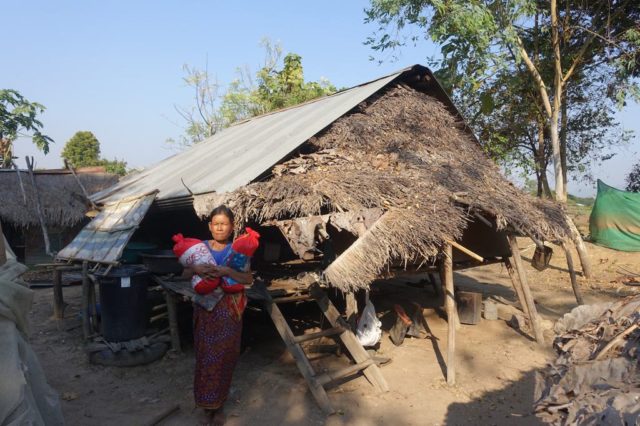A Social Distancing Survival Guide

Here’s a short list of resources to help you and your family right now. Many of these we have used personally, and found them useful. We’ve included a wide range of resources to help you find things that work for you and your family. Some of these things may not apply to you and your unique situation. We’ve worked to be helpful to as many different kinds of families and situations as possible.
Families protect children. We’re here to support and strengthen families, at home and abroad, as they protect their children.
Reset your attitudes with gratitude
It’s easy to focus on what you are missing out on, what you can’t have, and where you can’t go. Creating a daily family practice of gratitude can help reframe things for all of you.
Share 3 things you’re thankful for at mealtimes, or bed times.
Create a gratitude wall. Hang a large sheet of paper with pens nearby for family members to write down things they are thankful for.
Keep a gratitude journal together.
Download our free gratitude guide for tips on how to equip your family to pull together and stand strong when things are rough .
Set a goal
Having a goal gives you something to work toward and spend time on. It gives you focus and direction. Each family member can choose something to work toward. Remember a good goal is S.M.A.R.T. [Specific, Measurable, Achievable, Realistic, and Timely.] Choose something that you can accomplish while staying home, in a reasonable amount of time, with the resources you have.
Learn something new
Always wanted to know how to weave a basket or do a handstand? There’s a youtube video for that. Look around and find something you’re interested in learning.
Basket weaving with newspapers
Here’s a very comprehensive list of online learning resources
Schools all over the country use Khan Academy to teach students. Don’t know how to help your child with math problems, or chemistry? Theres a video for that here. They’ve created sample daily schedules here. Check out their kids app for preschoolers too.
Keep a family video log
Create an Instagram or Youtube account, if you don’t already have one, and upload daily videos about what you are doing while staying home all day. Get creative. Pretend you’re in a sci-fi space movie. Here’s a fun example produced by a family during their 6 weeks of Quarantine in Wuhan, China. It’s a good one to watch with your kids.
Take time to connect
You’re in the same space now, but you may not be connecting. Put down your devices for a while each day to snuggle, talk, and make eye contact. Through intentional connection you can be a reassuring presence for your children.
Take turns planning a daily activity to do together
Read books, play games, play music together, put on a play, family talent show, family bake off, family story telling, etc. Let each person be in charge of planning one day. Everyone must participate, or it’s no fun.
Listen to audiobooks
Audio books really help set a good tone for family times. Almost everyone will find themselves listening along, and it often helps people get quiet when you need it. You can do other things also; meal prep, drawing, some forms of cleaning, etc. while you’re listening to a book.
Here are resources for free audio books.
Free Audio Books App :Applestore, Google Play Store
Open Culture has over 1000 free classic audiobooks
Librivox also has free public domain audiobooks
Create a routine
A routine is not the same as rigid and tight packed schedule. What is does is give your day some overall structure and order. For example: Get dressed, even if you’re not going anywhere. Eat breakfast about the same time. Clean up after before moving onto the next activity of the day.
Setting a routine can be calming and soothing for everyone, and help them cope. But don’t try to plan a bunch of labor intensive activities. Boredom is the mother of all sorts of creative endeavors. Don’t think you have to schedule every hour. But set a structure to your day. It will be good for your mental health.
Video call with friends and family
Schedule regular calls to check up on friends and loved ones and to socialize outside your family unit. This is an amazing time in history to be practicing social distancing. The there are so many ways to stay connected, even while at home.
Tell family stories
A strong family narrative helps children to build resilience and cope with stressors. Children who hear stories of their own family history have better resilience than those who don’t. Tell your children about your own childhood, stories your parents told you, stories your grandparents told you, etc.
Make a Chore Schedule
You all need to pitch in to keep things tidy and feel better about being together in your living spaces. Everyone can help. Give your children age appropriate jobs to do, and reward their completion with a fun activity.
Stay active
Your body handles stress better in motion, and it will help with restlessness, and keep you all healthy. If possible, go outside every day for walks and sunshine, or at least stand on your balcony or front step. Put on some loud music and have a family dance party in the living room.
At home Pilates videos
At home Yoga videos
Dance workouts – something your teens may enjoy
Connect with your faith community online
Many faith communities have just moved their services online and have digital access for their members. Check to see if yours has done this.
Or join something new. There are many faith communities that have been online for years.
The North Umbria Community will guide you through praying the daily offices. It’s a nice way to bring some structure into your day as well.
Common Prayer posts daily prayers and readings for every day of the year.
Streaming options if you’re Jewish.
The Islamic Society of Baltimore has a live stream available.
Be positive when you talk about the situation
Your children might be scared because of the disruptions in their life and what they hear on the news and from those around them. We provide coaching to support you in giving your children the resilience to thrive.
Make your children stronger than fear. Sign up for Family Resilience Training today.
Maintain a regular sleep schedule
Irregular sleep schedules are a big contributor to poor mental health. Maintaining good habits around waking and sleeping is a simple way to help your family cope in times of stress. It’s tempting to just let it go, since you have no where to be, and no schedule to keep. But consistency in this area is key to maintaining resilience and strength.
That’s not to say that the occasional late night family movie or other activity is going to be harmful, as long as the habit is to have regular rising and sleeping times. This is just as important for you as for your children. Don’t just do this for them. Do it for yourself as well.
Get sunlight and look at growing things
If you are able, go outside. If not, sit close to windows and get sunlight on your skin. Open your windows and breath fresh air.
Start a container garden inside, or in your outdoor space if you have one and the season is right. Now is also a good time to learn how to grow sprouts in your kitchen. These can be good sources of nutrients and a back up if fresh produce becomes more difficult to obtain. Growing things and green plants are good for your mental health as well.
We wish your family all the best in the next few months. We are actively working to help you survive and thrive, even as we continue to support and be present for the most vulnerable families here on the Thai/Myanmar border.
Please consider donating to help us respond to the current crisis. Your support strengthens and protects families so they can protect their children.

What home looks like for families we support.
Carrien is co-founder of The Charis Project, Family Education Curriculum Developer, and mom of 6.
You can get her free mini-course on Making Your Family More Resilient here.
